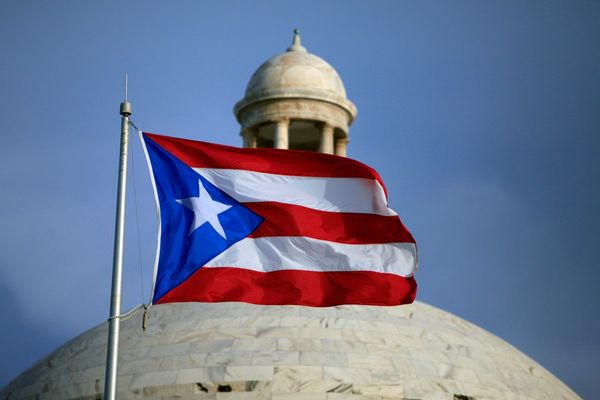
The ice is hot, with the average team value soaring 32% and the pending sale of the Pittsburgh Penguins for $900 million.
Last December, with the pandemic shortening the regular season to 56 games and keeping most arenas empty, Forbes released its annual NHL team valuations, pegging the league average at $653 million. That represented a 2% dip from the year before—no huge surprise seeing as, by our count, the league’s teams were about to lose an average of $39 million each during the 2020-21 season (in the sense of earnings before interest, taxes, depreciation and amortization, before taking into account their share of the Seattle Kraken’s expansion fee).
But in the time since, even as the pandemic has lingered, hockey has heated up. In our new set of valuations, the average is up to $865 million, an increase of 32% from last year and the biggest jump since the 50% gain of 2013, when the league signed its massive Canadian television deal. At the top of the ranking, the New York Rangers have climbed 21% since last year, becoming the first NHL team worth $2 billion while claiming the No. 1 spot for the seventh year in a row.
To see what a difference a year makes, look no further than Fenway Sports Group’s pending $900 million purchase of the Pittsburgh Penguins, which represents a new benchmark for hockey valuations. Before this deal, most transactions for controlling stakes, scant as they have been, valued NHL teams at about four times revenue. Tom Dundon bought the Carolina Hurricanes in 2018 for $420 million, or 3.9 times revenue. The revenue multiple was 4.2 in Scott Malkin and Jon Ledecky’s $485 million acquisition of the New York Islanders in 2016. The Arizona Coyotes, meanwhile, have changed hands twice over the past seven years: Andrew Barroway paid $305 million (or 3.3 times revenue) for the Coyotes in 2014, and Alex Meruelo paid $300 million (just 3 times revenue) for the team in 2019.
By comparison, the Penguins deal values the team at 4.5 times projected revenue for the 2021-22 season (excluding the playoffs). Speaking at a recent Sports Business Journal conference, Fenway Sports Group cofounder and chairman Tom Werner said the allure of the Penguins included the team’s iconic brand and opportunities to increase revenue at PPG Paints Arena and the nearby real estate development.
Yes, team sales have been few and far between in the NHL and have mostly involved financially challenged franchises. But even the Toronto Maple Leafs were valued at only 4.4 times revenue as part of Bell Canada and Rogers Communications’ acquisition of Maple Leaf Sports & Entertainment in 2012.
Bankers tell Forbes that there are a few reasons for the multiple increase. One is the league’s seven-year U.S. media deals with ESPN and Turner that began this season and will pay the NHL an average of $625 million a year, versus the average of $300 million the league was getting from NBC for its TV rights and ESPN for streaming only. Another reason for the rise in multiples: new arenas that throw off lots of cash from fancy seating, advertising and concessions. The Penguins’ home, PPG Paints Arena, opened about a decade ago. Rogers Place, home of the Edmonton Oilers, was christened in 2016. The New York Islanders moved into a brand-new arena this season—accounting for their 83% increase in value, to $950 million—as did the expansion Seattle Kraken, who paid a $650 million fee to enter the league and who have begun their first season valued at $875 million on the heels of strong ticket sales.
Some older arenas are also getting makeovers that pay dividends. The Philadelphia Flyers are in the midst of a $300 million transformation of Wells Fargo Center and are now worth $1.2 billion, up 50% from our last set of valuations. Madison Square Garden completed a $1 billion renovation eight years ago, helping push the Rangers to the top of the Forbes ranking even though they don’t lead the league in revenue. (They’re also helped by the fact that a buyer would have to pay a premium to acquire an Original Six team in the NHL’s biggest market.)
In addition, the league has increased sponsorship revenue, to $676 million last season from $560 million during the 2017-18 season, according to IEG. That number should tick up further as teams lock down jersey patch sponsors this season, with the patches set to debut in 2022-23. Add it all up, and league insiders say that the NHL’s hockey-related revenue should increase from a projected $4.8 billion this season to $5.4 billion in 2022-23. By 2025-26, the NHL thinks that revenue will hit $6 billion, 22% more than in the 2019-20 season.
League Projections For Hockey-Related Revenue
Hockey-related revenue refers to all revenue from the playing of NHL games or NHL-related events, including tickets (general and premium), merchandise and concession sales, all TV and radio deals, sponsorship and parking. Under the CBA between the owners and the players, hockey-related revenue is used in the calculation that determines the salary cap each season.
There are outliers to the new standard valuation multiple of 4.5, of course. Just as in other sports, big-market teams like the Rangers and the Maple Leafs will command premiums. And the Montreal Canadiens, thanks to their avid fan base and league-high local media deals, get a richer multiple, too. Conversely, Forbes assigns a multiple of only four (based on this season’s revenue projections) to the Coyotes, who do not even have an arena to play in next season and have been struggling ever since they left Winnipeg in 1996.
Regardless of city, one NHL investor sums up the current thinking like this: “NBA teams have been selling for six to eight times revenue. The NHL probably doesn’t have the international growth prospects of the NBA—like China—but the league is certainly worth five times revenue. People haven’t realized it because so few teams have changed hands and most of them have been bottom of the barrel.”
The biggest rise in these valuations belongs to the Oilers, who doubled in value from last season’s ranking, to $1.1 billion. We now believe that we were short-changing them on revenue in the past and have verified that the team ranks in the top quartile in the NHL in every important revenue category, including local media, where they are in the top five alongside the Maple Leafs, the Canadiens, the Detroit Red Wings and the Chicago Blackhawks.
Last week, a person who advises buyers and sellers of hockey teams on valuations told Forbes that the Coyotes were for sale, with the idea that the league would allow the team to eventually move to an arena that would be built in Houston. (The team quickly denied that account, saying in a statement, “The Coyotes are 100% committed to playing in Arizona.”) Setting that speculation aside, we value the Coyotes at $400 million based on their current arena situation in Glendale, Arizona. But a buyer with an option to move the team would certainly pay much more than that.
The NHL’s Most Valuable Teams 2021

1. New York Rangers
• Value: $2 billion
• One-Year Change: 21%
• Five-Year Change: 60%
• Owner: Madison Square Garden Sports
2. Toronto Maple Leafs
• Value: $1.8 billion
• One-Year Change: 20%
• Five-Year Change: 64%
• Owner: Bell Canada, Rogers Communications, Larry Tanenbaum
3. Montreal Canadiens
• Value: $1.6 billion
• One-Year Change: 19%
• Five-Year Change: 43%
• Owner: Molson family
4. Chicago Blackhawks
• Value: $1.4 billion
• One-Year Change: 29%
• Five-Year Change: 51%
• Owner: Rocky Wirtz
5. Boston Bruins
• Value: $1.3 billion
• One-Year Change: 30%
• Five-Year Change: 63%
• Owner: Jeremy Jacobs

6. Philadelphia Flyers
• Value: $1.2 billion
• One-Year Change: 50%
• Five-Year Change: 67%
• Owner: Comcast
7. Edmonton Oilers
• Value: $1.1 billion
• One-Year Change: 100%
• Five-Year Change: 147%
• Owner: Daryl Katz
8. Los Angeles Kings
• Value: $1.025 billion
• One-Year Change: 24%
• Five-Year Change: 71%
• Owner: Philip Anschutz
9. Detroit Red Wings
• Value: $990 million
• One-Year Change: 28%
• Five-Year Change: 58%
• Owner: Marian Ilitch
10. New York Islanders
• Value: $950 million
• One-Year Change: 83%
• Five-Year Change: 147%
• Owner: Scott Malkin, Jon Ledecky
11. Washington Capitals
• Value: $930 million
• One-Year Change: 24%
• Five-Year Change: 62%
• Owner: Ted Leonsis

12. Pittsburgh Penguins
• Value: $900 million
• One-Year Change: 38%
• Five-Year Change: 58%
• Owner: Mario Lemieux, Ron Burkle
13. Seattle Kraken
• Value: $875 million
• Owner: David Bonderman
14. Vancouver Canucks
• Value: $825 million
• One-Year Change: 14%
• Five-Year Change: 18%
• Owner: Aquilini Investment Group

15. New Jersey Devils
• Value: $775 million
• One-Year Change: 46%
• Five-Year Change: 142%
• Owner: Josh Harris, David Blitzer
16. Dallas Stars
• Value: $720 million
• One-Year Change: 25%
• Five-Year Change: 44%
• Owner: Tom Gaglardi
17. Vegas Golden Knights
• Value: $710 million
• One-Year Change: 25%
• Owner: Bill Foley, Maloof family
18. Calgary Flames
• Value: $680 million
• One-Year Change: 42%
• Five-Year Change: 66%
• Owner: N. Murray Edwards
19. Minnesota Wild
• Value: $675 million
• One-Year Change: 35%
• Five-Year Change: 69%
• Owner: Craig Leipold
20. Tampa Bay Lightning
• Value: $650 million
• One-Year Change: 38%
• Five-Year Change: 113%
• Owner: Jeffrey Vinik

21. St. Louis Blues
• Value: $640 million
• One-Year Change: 25%
• Five-Year Change: 106%
• Owner: Tom Stillman
22. Colorado Avalanche
• Value: $630 million
• One-Year Change: 35%
• Five-Year Change: 75%
• Owner: Stanley Kroenke
23. San Jose Sharks
• Value: $625 million
• One-Year Change: 21%
• Five-Year Change: 33%
• Owner: Hasso Plattner
24. Anaheim Ducks
• Value: $620 million
• One-Year Change: 35%
• Five-Year Change: 49%
• Owner: Henry and Susan Samueli
25. Nashville Predators
• Value: $600 million
• One-Year Change: 38%
• Five-Year Change: 122%
• Owner: Herbert Fritch
26. Winnipeg Jets
• Value: $575 million
• One-Year Change: 42%
• Five-Year Change: 69%
• Owner: True North Sports + Entertainment

27. Carolina Hurricanes
• Value: $550 million
• One-Year Change: 25%
• Five-Year Change: 139%
• Owner: Tom Dundon
28. Ottawa Senators
• Value: $525 million
• One-Year Change: 22%
• Five-Year Change: 48%
• Owner: Eugene Melnyk
29. Buffalo Sabres
• Value: $500 million
• One-Year Change: 30%
• Five-Year Change: 67%
• Owner: Terrence and Kim Pegula

30. Columbus Blue Jackets
• Value: $475 million
• One-Year Change: 53%
• Five-Year Change: 94%
• Owner: John P. McConnell, Nationwide
31. Florida Panthers
• Value: $450 million
• One-Year Change: 53%
• Five-Year Change: 91%
• Owner: Vincent Viola
32. Arizona Coyotes
• Value: $400 million
• One-Year Change: 40%
• Five-Year Change: 67%
• Owner: Alex Meruelo
METHODOLOGY
Our valuations are enterprise values (equity plus net debt) and include the economics of each team’s current arena deal but not the value of the real estate itself. We adjust values for teams that have moved into new arenas since the last completed season, like the Islanders, or are definitely moving into new ones in the near future, based on how the arena is being financed, when it will open and the degree to which we can estimate revenues from the new arena.
Revenue and operating income are adjusted for revenue sharing but exclude the $22 million that each team (save the Vegas Golden Knights) received from the Seattle Kraken’s $650 million expansion fee. All figures are in U.S. dollars based on the average U.S.-Canada exchange rate during the 2020-21 season.
The information used to compile our valuations primarily came from the teams, sports bankers, media consultants and public documents, like arena lease agreements and bond documents.
With additional reporting by Justin Teitelbaum.







